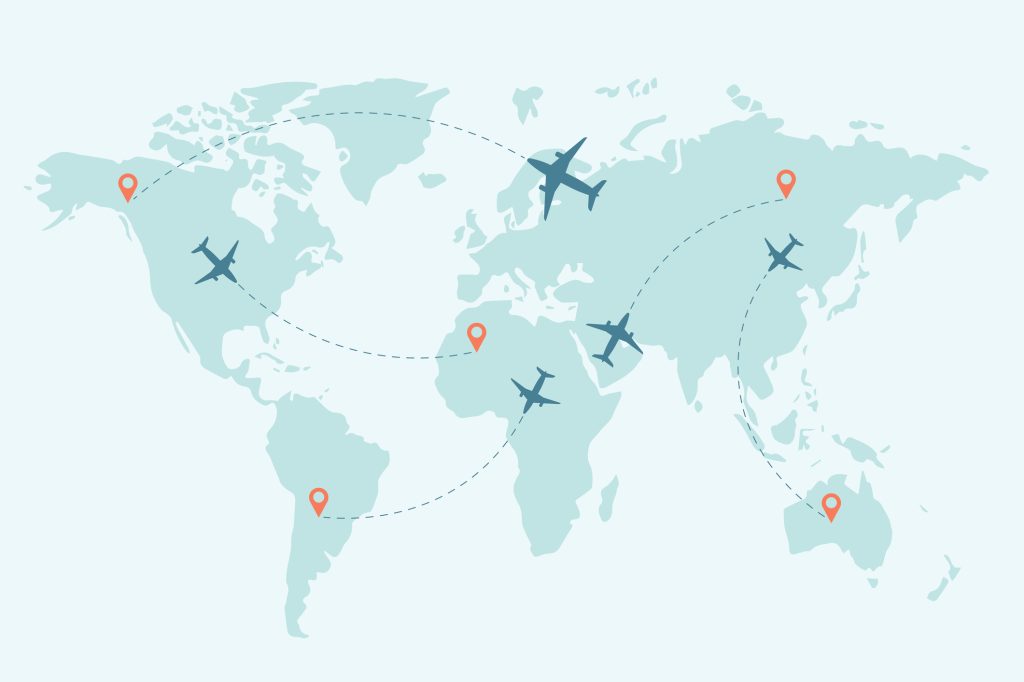It continues to be a very busy time for copyright and collective licensing around the world. At CCC, we see it as an important part of our mission to track the copyright landscape and to keep our partners informed about the latest developments. This update summarizes some important highlights from key jurisdictions.
Like many governments around the world, the one in Hong Kong has been reviewing its current copyright legislation in light of AI and related technologies. It launched a public consultation on the issue in July this year. One feature of the process is consideration of a possible copyright exception for text and data mining (TDM). An exception for the use of copyright works for TDM activities is not presently in place in Hong Kong’s Copyright Ordinance (Cap. 528). The HK government’s consultation exercise is explicitly informed by related developments it has seen in other jurisdictions such as Singapore, the UK, and the EU. The consultation period only ended recently (8 September), but the HK government has made no secret of the fact that it favors an exception and that rightsholders’ concerns in its view can be assuaged with additional safeguards. At the time of writing, we have not seen the specific wording of an exception, but it seems clear that it will eventually encompass commercial and non-commercial uses, so rightsholders and pro-copyright organizations like IFRRO will be watching next steps with great concern.
In Japan, the government’s AI Strategy Council has set up a Study Group on AI Systems. It held its first two meetings in August. At the first meeting (a joint meeting with the AI Strategy Council), Former Prime Minister Kishida set out the government’s position on some basic principles for establishing AI systems, including balancing risk control and innovation, designing a flexible framework that can keep up with the pace of change in technology and business, complying with international guidelines, and ensuring appropriate AI procurement and use by the government. The Study Group conducted hearings with relevant stakeholders in August and September and intends to provide policy direction within a few months. On specific copyright matters, the Agency for Cultural Affairs published an explanatory document on 31 July. Its purpose was to introduce, in an easy-to-understand manner, the approaches considered desirable for AI developers and other relevant stakeholders to reduce copyright infringement risks and for copyright holders to preserve and exercise their own rights.
The Brazilian Copyright Institute published “Artificial Intelligence and Copyright: contributions to the regulatory debate in Brazil.” In a post announcing its publication, Luca Schirru, Director at the Brazilian Copyright Institute, stated, “We believe that the regulation of the interplay between AI and copyright should, in this context, create an environment that promotes, at the same time, (i) the protection and remuneration of authors and artists; (ii) a positive environment for research activities, and (iii) the development and use of technological innovations, in this case, through AI systems.”
Reproduction Rights Organizations (RROs) around the world continue to take important steps to confront infringement and protect the interests of rightsholders. One notable success in recent months was a decision by the Supreme Court of Korea in favor of the local RRO, KOLAA, who had brought a copyright infringement case against the Korea Institute for Curriculum and Evaluation (KICE). In its ruling, the Supreme Court found that “there is a significant concern that the behavior of KICE will replace the market demand of the works and will damage their market value.”
In the European Union, the EU AI Act came into force on 1 August. Although some of its provisions come into effect right away, others will be introduced more gradually in a transitional period ending in 2027. A key feature of the act is the obligations it places on AI providers to respect EU copyright law and specifically to draw up and publicize a detailed summary about the content used for training general-purpose AI models. A new AI Office has been set up as a result of the act (replacing Directorate A of DG CONNECT). It was officially launched in June. The office will have a key role in monitoring the act and enforcing its provisions, including the copyright-related transparency obligations. The Commission hosted the first official meeting of the AI Board. The inaugural meeting focused on the establishment of the AI Board’s organization, an update and strategic discussion on EU AI policy, and discussion on the first deliverables of the Commission related to the AI Act’s implementation, among other key topics.
In Denmark, the Danish Rights Alliance published its “Report on AI model providers’ training data transparency and enforcement of copyrights.” The report aims to show the crucial nature of transparency obligations on AI providers and what degree of transparency is required for rightsholders to exercise and enforce their rights.
The Copyright Amendment Bill in South Africa has featured in these updates for more than a decade. Many rightsholders will recall that the highly controversial bill passed in both houses of parliament earlier this year and that the country’s Constitutional Court imposed a deadline of 21 September for President Ramaphosa to sign the bill. The deadline passed without a signature, and it remains unclear what will happen next. We will continue to watch the situation very closely.
It was a great pleasure to join the global community of RROs at the recent IFRRO World Congress held in Quebec City. The program was a wide-ranging one, but inevitably there was a particular focus on current developments in copyright and licensing relating to AI. Several RROs updated the community about their plans to consult on and launch collective licenses including AI rights. CCC, led by Tracey Armstrong (IFRRO’s current president), took the opportunity of the congress to hold bilateral discussions with many individual RROs, and extended and renewed its formal cooperation with several RROs including CADRA (Argentina) and ERRA (United Arab Emirates).

